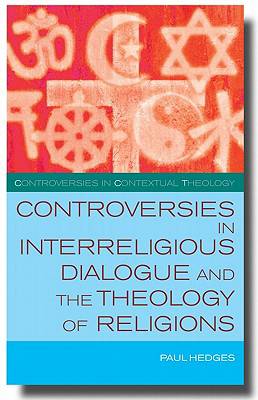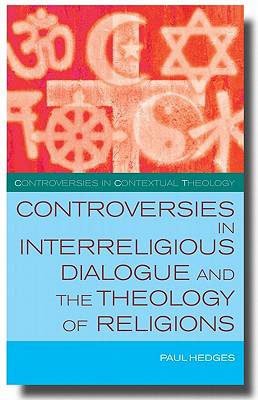
- Afhalen na 1 uur in een winkel met voorraad
- Gratis thuislevering in België vanaf € 30
- Ruim aanbod met 7 miljoen producten
- Afhalen na 1 uur in een winkel met voorraad
- Gratis thuislevering in België vanaf € 30
- Ruim aanbod met 7 miljoen producten
Zoeken
Controversies in Interreligious Dialogue and the Theology of Religions
Paul Hedges
Paperback | Engels
€ 73,95
+ 147 punten
Omschrijving
This book provides a guide and critical extension to contemporary controversies in the theology of religions and interfaith dialogue. It addresses questions raised through certain postmodern theologies (which present an option herein termed 'particularity'), which suggest that the whole enterprise of the theology of religions, as currently understood, is fundamentally misguided and suggest instead an alternative approach. Paul Hedges reflects on how the traditional typology for the theology of religions (exclusivism - inclusivism - pluralism) may be rethought and seen as viable, offering a reformulation of it and critically assesses the main line of critique from post-modern theology, that of particularity, and its alternative vision. Finally, he suggests ways forward and considers how these debates impact on the practice in interfaith dialogue. Interreligious dialogue is a core subject in most theology and religious studies courses in university departments and theological colleges.
Specificaties
Betrokkenen
- Auteur(s):
- Uitgeverij:
Inhoud
- Aantal bladzijden:
- 192
- Taal:
- Engels
Eigenschappen
- Productcode (EAN):
- 9780334042112
- Verschijningsdatum:
- 28/10/2010
- Uitvoering:
- Paperback
- Formaat:
- Trade paperback (VS)
- Afmetingen:
- 135 mm x 213 mm
- Gewicht:
- 317 g

Alleen bij Standaard Boekhandel
+ 147 punten op je klantenkaart van Standaard Boekhandel
Beoordelingen
We publiceren alleen reviews die voldoen aan de voorwaarden voor reviews. Bekijk onze voorwaarden voor reviews.











